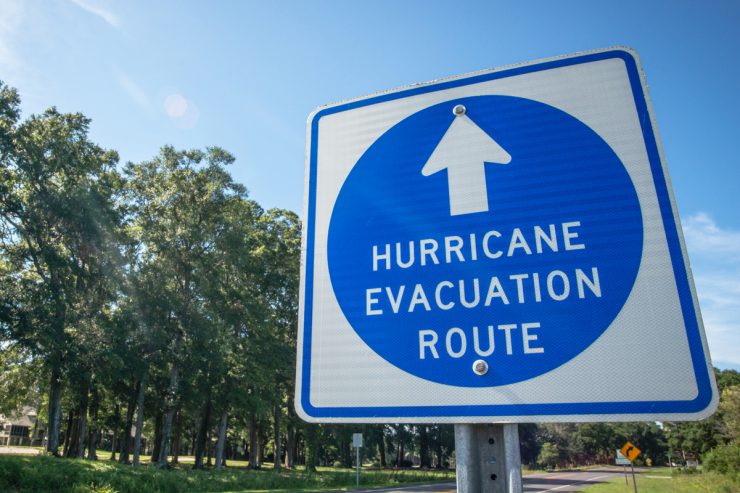As most condominium association boards and managers are aware by now, Section 718.112(2)(k), Florida Statutes, of the Condominium Act, was most recently amended to require a condominium’s bylaws to include a provision for alternative dispute resolution as provided in Section 718.1255, Florida Statutes. The alternative dispute resolution process outlined in Section 718.1255, Florida Statutes, was also amended, effective July 1, 2021, to allow for arbitration or mediation of certain condominium disputes. Previously, prior to filing a lawsuit in state court, condominium associations and unit owners were required to petition the Division of Florida Condominiums, Timeshares, and Mobile Homes of the Department of Business and Professional Regulation (“Division”) to conduct an arbitration hearing when there was a disagreement or “dispute” between the association and unit owner regarding the following:
- The authority of the board of directors, under the Condominium Act or the association documents, to:
- Require any owner to take any action, or not to take any action, involving that owner’s unit or the appurtenances thereto; or
- Alter or add to a common area or element.
- The failure of the Association to:
- Properly conduct elections.
- Give adequate notice of meetings or other actions.
- Properly conduct meetings.
- Allow inspection of books and records
- A plan to terminate the condominium, per Section 718.117, Florida Statutes.
(Note that disputes regarding the following are NOT subject to the statutory alternative dispute resolution process outlined in Section 718.1255, Florida Statutes: title to any unit or common element; the interpretation or enforcement of any warranty; the levy of a fee or assessment, or the collection of an assessment; the eviction or other removal of a tenant from a unit; alleged breaches of fiduciary duty by one or more directors; or claims for damages to a unit based upon the alleged failure of the association to maintain the common elements or condominium property.)
Section 718.1255(5), Florida Statutes, now allows the condominium association or unit owner to choose between the Division’s arbitration hearing process or the presuit meditation process with which homeowner associations are required to comply per Section 720.311, Florida Statutes, of the Homeowners Association Act. (Condominium election and recall disputes are not eligible for mediation and are required to be arbitrated by the division or filed in a court of competent jurisdiction.) It is important for condominium boards to consider a number of factors when choosing whether to pursue presuit arbitration or mediation of a particular dispute. Below are guidelines for an association to consider and discuss with its attorney when considering its enforcement and alternative dispute resolution options:
1. Language of the Governing Documents
As always, the first place for an association to start when considering its enforcement and alternative dispute resolution options is the association’s governing documents (which collectively refers to an association’s declaration, articles of incorporation, bylaws, and rules and regulations). Some association declarations or bylaws may contain a specific notice and alternative dispute resolution procedure with which the association is required to comply prior to initiating a lawsuit against an owner. For example, the declaration may contain a clause that expressly states that the association “shall” submit certain disputes to arbitration, in which case, the association must arbitrate the dispute or amend the provision to remove the requirement. The association’s attorney may also conduct an analysis of the association’s governing documents to determine if there is certain language within the documents which automatically incorporates into the association’s governing documents future changes to the Condominium Act (“Kaufman language”).
2. Timing
The Division arbitration hearing process is similar to the hearing process followed in state court. When a party files a petition to initiate arbitration with the Division, an arbitrator is appointed to act as a “judge” between the parties who are responsible for filing motions and presenting evidence and testimony in support of their position. If required, the arbitrator may conduct a mini-trial or evidentiary hearing during which the parties may produce and present evidence and cross-examine witnesses. In light of the foregoing, the arbitration process can sometimes last a few to several months (if not a year or two) before there is a final opinion issued by the arbitrator. Even after the arbitrator issues a “final” opinion, Section 718.1255(4)(k), Florida Statutes, allows the parties to file a complaint for “trial de novo” in state court within thirty (30) of the arbitrator’s final decision. In which case, the parties would essentially have to “re-litigate” the dispute from the beginning before the state court judge.
The presuit mediation process outlined in Section 720.311, Florida Statutes, requires the association send a statutory offer to participate in mediation to the alleged violator. If the individual does not respond within twenty (20) days from the date of the letter, or if the individual does not agree to mediate, the Association can proceed with filing a lawsuit against the individual in state court, without any additional notice to the individual. Additionally, persons who fail or refuse to participate in the entire mediation process may not recover attorney’s fees and costs in subsequent litigation relating to the dispute, even if he or she is ultimately the prevailing party in the lawsuit.
On balance, the presuit mediation process may be quicker than the arbitration process in resolving the underlying dispute (if the individual agrees to mediate) or obtaining a final resolution of the dispute in state court. (Note that Section 718.1255(4)(c), Florida Statutes, does allow a party to file a Motion to Stay the arbitration if the Association is requesting emergency relief.)
3. Cost and Attorney’s Fees
Because the arbitration process is similar in time and, in some cases, effort to the state court hearing process, the Association can expect to incur costs, including but not limited to petition filing fee ($50), administrative or management company costs, mailing and copying costs, etc., and attorney’s fees; even if the individual does not aggressively fight or defend against the Association’s petition. On the other hand, if the Association chooses to offer presuit mediation, and the other party agrees, the Association will still incur administrative and management fees but the other party must also specifically agree to pay or prepay one-half of the mediator’s fee. Additionally, the attorney time/expense associated with preparing and attending a one or two-day mediation are generally less than the attorney time/expense time associated with the entire arbitration process.
With regard to attorney’s fees, Section 718.1255(4)(k), Florida Statutes, provides that the prevailing party in the arbitration shall be awarded the costs of the arbitration and the “reasonable attorney fees” in an amount determined by the arbitrator. It is important to note, however, that in any arbitration, the Association’s success as the “prevailing party” is not guaranteed and thus, the Association can be subject to paying its attorney fees and the other side’s attorney fees if the arbitrator issues an opinion against the association. Additionally, even if the association is ultimately determined to be the “prevailing party,” it is responsible for paying its attorney fees and costs up front and throughout the duration of the arbitration. Not to mention, there is no guarantee that the arbitrator will award the Association the entire amount of its costs and fees nor that the individual is financially capable of paying the Association’s award of attorneys’ fees and costs (ie: “judgment proof”).
Without a doubt, the presuit mediation process is generally cheaper than the presuit arbitration process with regard to both actual costs and attorney fees. Because the parties are encouraged to come to the table to discuss the dispute with the assistance of a neutral mediator, it is more likely that a resolution can be reached more quickly (and calmly) than if the parties first address the issues and their positions in an adversarial type of hearing (as is the case with arbitration or litigation in state court). Additionally, during the privileged and confidential mediation process, the Association is able to assess the strength of its claim and that of the other side’s prior to deciding whether it wants to pursue full blown litigation on the issue in state court. Lastly, and importantly, even if the other side does not agree to mediate or the mediation results in an impasse between the parties, the Association is not at risk of paying the other party’s attorney’s fees, as is the case if the Association is not the prevailing party in the arbitration proceeding.
4. Nature of the Dispute
As already outlined above, not every dispute is subject to the presuit mediation or arbitration process outlined in s. 718.1255(4)(k), Florida Statutes, so it is important for the association to review each dispute or potential claim with the association’s attorney as well as the association’s insurance carrier (as applicable). If the dispute is one that involves a topic or issue that involves or affects a number of owners, the Association may consider the arbitration process in order to obtain a “final” opinion from the arbitrator which might be applicable to other owners (ie: enforceability of the Association’s rules regarding official records and written inquiries). If, however, the issue is one that concerns only one owner or is highly fact-specific, the confidential, presuit mediation process may be advisable.
The latest changes to Section 718.1255, Florida Statutes, reflect the legislature’s continuing commitment to helping condominium associations and unit owners resolve disagreements in the most cost-effective and timely manner. Be sure to review your association’s current alternative dispute resolution process and procedures with association counsel today to ensure it is up-to-date and effectual in resolving the condominium’s disputes.

Shayla J. Mount
Attorney at Law, Becker
Orlando | bio
















